How to rebuild a city with Karam Alkatlabe

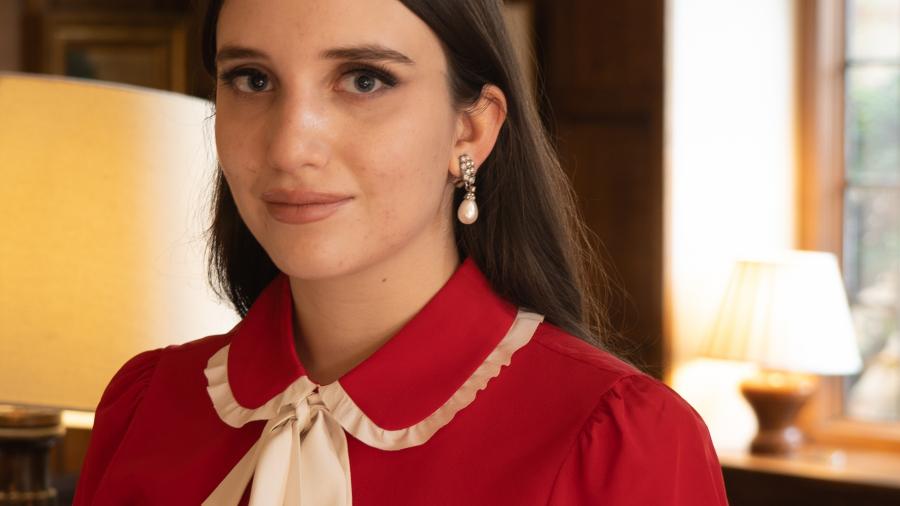
“My future goal is still the same as years ago – I want to pursue a career in academia,” says second year PhD student in Law, Anna Lukina.

Anna Lukina grew up in Moscow, Russia. She moved to Oxford for her undergraduate degree and Master’s degree in Law, before completing a second MA at Harvard Law School. As a secondary school student, Anna was lucky enough to participate in the Social Science Olympiads (state-wide competitions), which confirmed her passion for studying legal philosophy. Reflecting on her current PhD endeavour, Anna says, “I'm back in school because I can't get enough of studying!”
Here, Anna talks us through her academic journey, from presenting her doctoral research at the Wolfson Research Event (WRE) to incorporating her passion for video games into her legal research.
Can you summarise your PhD research in your own words?
My current PhD project at Cambridge is entitled, ‘Towards a Jurisprudence of Evil Law’. I am investigating the role of law in evil regimes such as Nazi Germany, Soviet Union under Stalin, and slavery in the antebellum United States from both a legal-theoretical and a legal-historical perspective. Evil law presents an interesting paradox: on the one hand, the legal form constrains the wicked state’s power, but it also brings some benefits that any, even the most craven, state cannot live without. I am fortunate to be supervised by Dr Lars Vinx of Hughes Hall.
What are you currently involved in academically?
My broader research interests are in jurisprudence, legal history (especially Soviet legal history), and public law. My work has appeared in Ratio Juris, Jurisprudence, The Ideology and Politics Journal and Review of Central and East European Law, as well as in edited volumes on Russia and international law and the jurisprudence of videogames (which was a great way to connect my hobby with my research!). On top of that, I have taught Jurisprudence at Oxford and designed my own courses on Anglo-American Legal Theory and Soviet Law at the Free University Moscow, which is a non-profit connecting teachers and learners in the name of academic freedom.
How would you describe the research culture here at Wolfson?
Interdisciplinarity is key to what I do as part of my PhD studies and broader research agenda. This is why the collegiate environment is extremely important. I can walk into the Common Room and start talking to anyone and not just learn about what they are doing, but discover new insights pertaining to my own research. Everyone at Wolfson is extremely intellectually curious and motivated – I guess this is a good description of our ‘research culture’, and our culture at large.
What opportunities are there to engage academically at Wolfson?
Last year, I was privileged to be on the committee for the Wolfson Research Event (WRE) in the role of an Editorial Officer, as well as to present my doctoral research there. WRE is an annual academic conference where all post-graduate students at Wolfson can present their own research no matter the seniority or discipline. I find events such as these profoundly important as I believe in pursuing one’s academic passions as early as possible since I started my own academic journey whilst still being an undergraduate. For a young scholar, an event like WRE is an excellent training ground as your submissions are reviewed by your peers before the conference and you are encouraged to practise your presentations and get feedback before the big day.
What did you learn through presenting your research at the Wolfson Research Event?
Even though I have presented at many academic conferences before WRE, it was my first time organising one. This taught me many important lessons as to what goes on behind the scenes. The PhD journey in social sciences is often solitary, so it was great to be working as a part of a team to create what was, I hope, a very successful event together. It was a very busy, but still a very happy and fulfilling, time. It felt great giving back to the academic community after my own trials and tribulations as an early career researcher.
What are your future goals and how is your time at Wolfson preparing you for your future career?
My future goal is still the same as years ago – I want to pursue a career in academia. I find Wolfson to be very supportive of me and other aspiring academics in the College. For example, I was very fortunate to receive the College’s Travel and Research Grant, enabling me to present my doctoral research at a major conference in my field.
Would you recommend choosing Wolfson as a College to other prospective postgraduate students?
Wolfson found me rather than the other way around, and for that I am extremely grateful. I would recommend it to anyone considering applying to Cambridge in a heartbeat if you want to do your research in a supportive and at the same time intellectually stimulating environment. I am truly proud to be a Wolf.
This article is part of the PhD Student Profile Series:
The rowing captain whose work could help better predict climate change
See Anna’s own website to keep up to date with her career progress and most recent publications.
You can learn more about the funding available at Wolfson and how to apply to study for a PhD at Cambridge University as a Wolfson College student on our website.
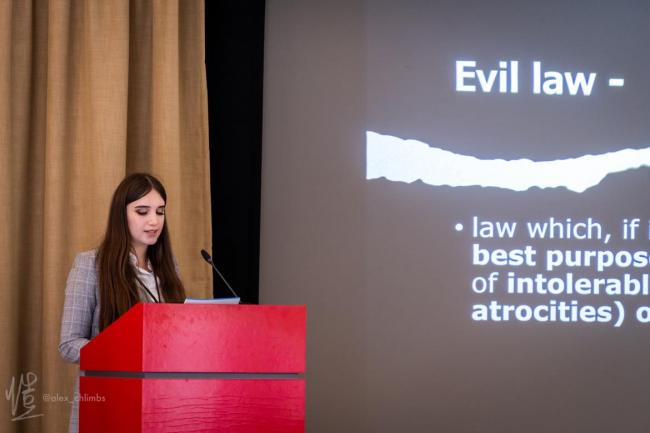
Anna presenting her doctoral thesis at the WRE
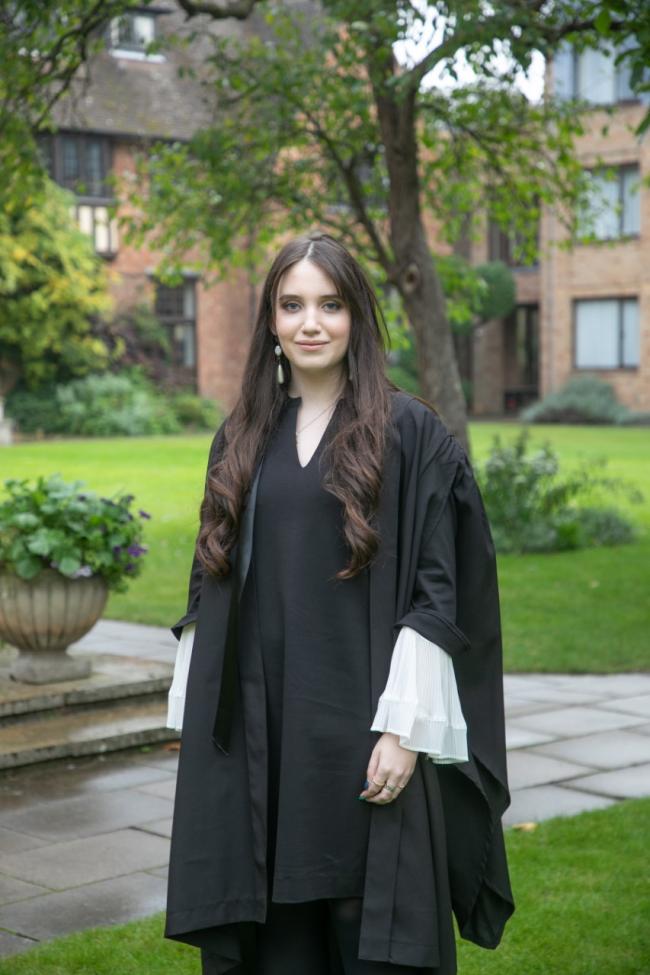
Anna at Wolfson matriculation
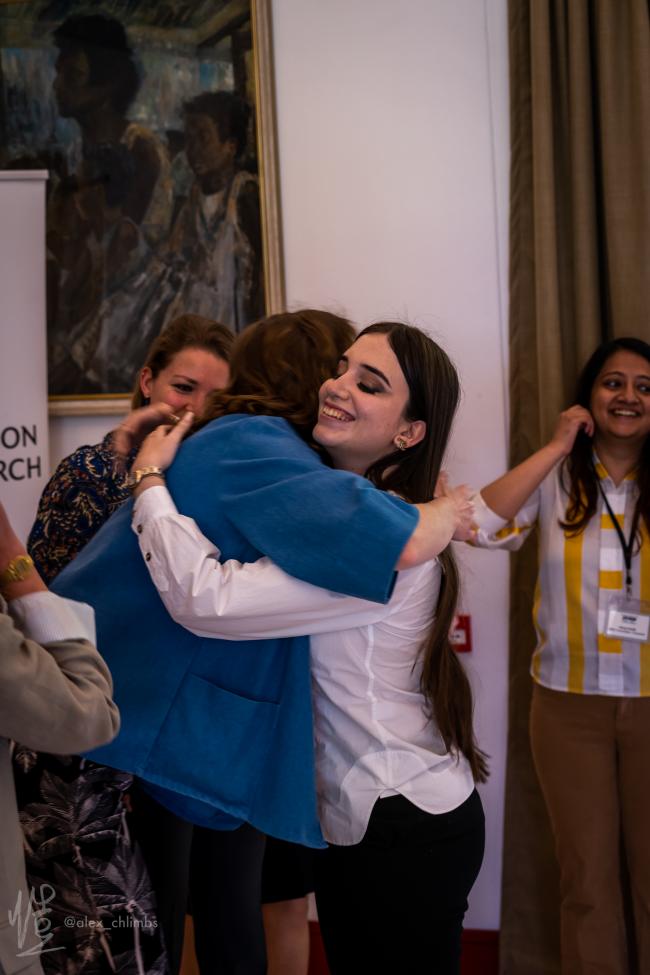
Celebrating a successful WRE
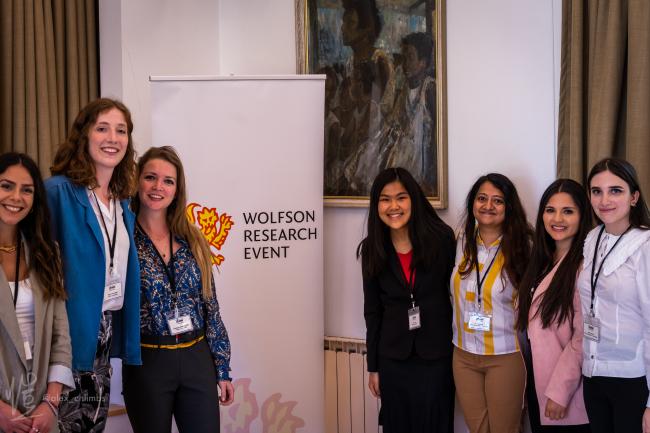
WRE committee team







